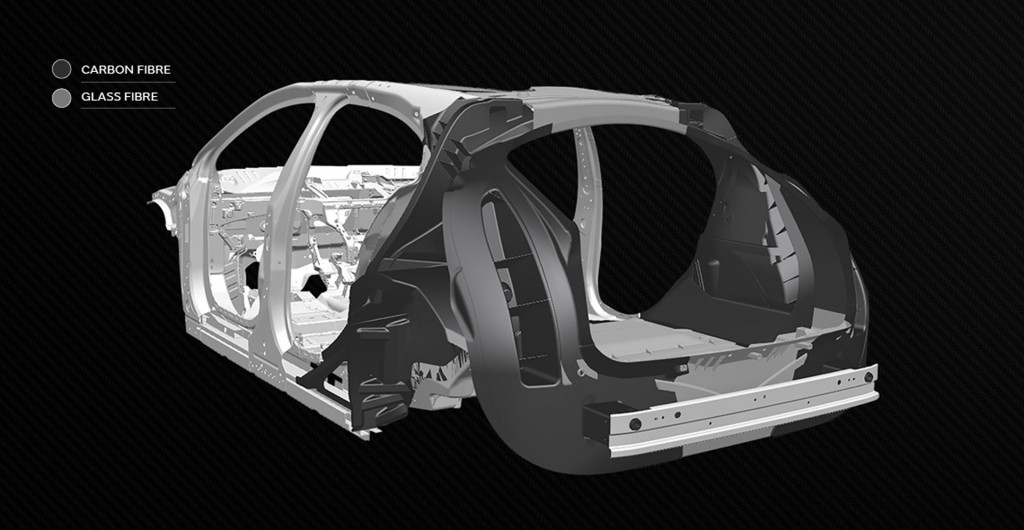Jaguar Land Rover looks to boost EV range by reducing weight with composites
A consortium of academic and industry groups in the United Kingdom known as Tucana is developing technology for lightweight vehicle and powertrain structures to help automakers reduce the weight of their electric vehicles.
The consortium, which is led by Jaguar Land Rover, is developing low-cost, scalable vehicle structures utilizing composite materials such as carbon-fiber and fiberglass in key areas instead of heavier steel and aluminum.
Some additional members of Tucana include Toray International, Warwick Manufacturing Group, and Expert Tooling & Automation.
Jaguar Land Rover is expected to be among the first beneficiaries of the technology and is planning to have a fleet of prototypes on the road by 2022. The automaker said Tuesday the technology should help reduce the weight of a vehicle structure by 77 pounds. This reduced weight can then offset the weight of bigger batteries with increased range in both battery-electric vehicles and plug-in hybrids.

Tucana Project: Lightweight construction using composite materials
The strategic use of strong composite materials, for instance carbon-fiber, will also deliver improvements in stiffness and crash safety. With the Tucana technology, vehicle stiffness can be increased by 30%, according to Jaguar Land Rover.
“The development of new lightweight body structures to complement the latest zero-emissions powertrains will be key as the electrification of our vehicle range continues,” Marcus Henry, research manager at Jaguar Land Rover, said in a statement.
Jaguar Land Rover’s sole EV at present is the Jaguar I-Pace which arrived for 2019 and based on a bespoke platform. The automaker is readying a new modular platform capable of supporting battery-electric, plug-in hybrid and mild-hybrid powertrains, as well as car and SUV body styles. Known as the Modular Longitudinal Architecture, or MLA, the platform is expected to debut in a redesigned Jaguar XJ.
The redesigned XJ, which is coming with battery-electric power, was originally due in 2020 but is now expected to arrive in late 2021.
